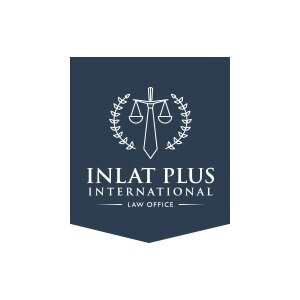Best Communications & Media Law Lawyers in Latvia
Share your needs with us, get contacted by law firms.
Free. Takes 2 min.
Or refine your search by selecting a city:
List of the best lawyers in Latvia
About Communications & Media Law in Latvia:
Communications & Media Law in Latvia governs the legal aspects related to communication and media activities in the country. This includes regulations on freedom of speech, media content, advertising, intellectual property rights, and data protection.
Why You May Need a Lawyer:
You may need a lawyer in the field of Communications & Media Law if you are facing issues such as defamation, copyright infringement, privacy violations, contract disputes, or regulatory compliance challenges.
Local Laws Overview:
In Latvia, the Constitution guarantees freedom of expression and the press. However, there are laws in place to regulate media content, protect intellectual property rights, ensure data privacy, and prevent the spread of harmful information.
Frequently Asked Questions:
1. What is considered defamation in Latvia?
In Latvia, defamation is the act of making false statements that harm someone's reputation. It can be classified as either criminal or civil offense, depending on the circumstances.
2. How are intellectual property rights protected in Latvia?
Intellectual property rights in Latvia are protected through copyrights, trademarks, and patents. It is essential to register your intellectual property to receive legal protection.
3. What are the regulations on advertising in Latvia?
Advertising in Latvia is regulated to ensure transparency, accuracy, and compliance with consumer protection laws. False or misleading advertisements are prohibited.
4. How is data protection regulated in Latvia?
Data protection in Latvia is governed by the General Data Protection Regulation (GDPR) and local laws. Companies must secure and process personal data in accordance with these regulations.
5. What are the consequences of copyright infringement in Latvia?
Copyright infringement in Latvia can lead to legal action, including civil lawsuits, fines, and injunctions. It is crucial to respect the intellectual property rights of others.
6. Can I be held liable for content posted on social media in Latvia?
Yes, individuals can be held liable for content posted on social media that violates laws or infringes on the rights of others. It is essential to be mindful of what you share online.
7. How can I protect my privacy online in Latvia?
To protect your privacy online in Latvia, you should use secure passwords, enable two-factor authentication, avoid sharing personal information publicly, and be cautious of phishing scams.
8. What are the regulations on media ownership in Latvia?
Media ownership in Latvia is regulated to prevent monopolies and ensure diversity in the media landscape. Companies must disclose their ownership structure to the public.
9. What are the legal implications of fake news in Latvia?
Spreading fake news in Latvia can have legal consequences, including defamation lawsuits, fines, and damage to one's reputation. It is essential to verify information before sharing it.
10. How can I file a complaint about media content in Latvia?
If you believe that media content in Latvia violates ethical standards or regulations, you can file a complaint with the National Electronic Mass Media Council (NEPLP) or other relevant authorities.
Additional Resources:
For more information on Communications & Media Law in Latvia, you can visit the National Electronic Mass Media Council (NEPLP) website or consult with a local legal firm specializing in media law.
Next Steps:
If you require legal assistance in the field of Communications & Media Law in Latvia, it is advisable to seek the expertise of a qualified lawyer who can guide you through the legal process and protect your rights effectively.
Lawzana helps you find the best lawyers and law firms in Latvia through a curated and pre-screened list of qualified legal professionals. Our platform offers rankings and detailed profiles of attorneys and law firms, allowing you to compare based on practice areas, including Communications & Media Law, experience, and client feedback.
Each profile includes a description of the firm's areas of practice, client reviews, team members and partners, year of establishment, spoken languages, office locations, contact information, social media presence, and any published articles or resources. Most firms on our platform speak English and are experienced in both local and international legal matters.
Get a quote from top-rated law firms in Latvia — quickly, securely, and without unnecessary hassle.
Disclaimer:
The information provided on this page is for general informational purposes only and does not constitute legal advice. While we strive to ensure the accuracy and relevance of the content, legal information may change over time, and interpretations of the law can vary. You should always consult with a qualified legal professional for advice specific to your situation.
We disclaim all liability for actions taken or not taken based on the content of this page. If you believe any information is incorrect or outdated, please contact us, and we will review and update it where appropriate.
Browse communications & media law law firms by city in Latvia
Refine your search by selecting a city.











